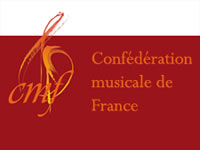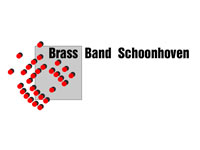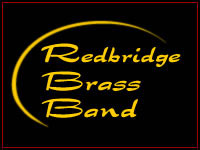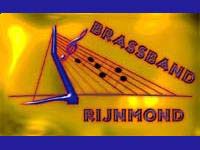2010 French Open Championship - retrospective
15-Jun-2010Roy Terry braved the heat, the wine and lovely surroundings of Amboise in the Loire Valley to hear Brass Band Rijnmond make it a hat trick of wins at an increasingly popular French Open.
 The French Open in the historic Loire valley town of Amboise is always action-packed.
The French Open in the historic Loire valley town of Amboise is always action-packed.
There’s no excuse for anyone not knowing that brass bands are in town.
Opening Gala Concert
And the event was kick started in fine style too, as Redbridge won over the French audience with an opening gala concert consisting of a number of arrangements in big band style tempered with classical arrangements and more reflective solo items.
The big band pieces were played in idiomatic style without ever becoming harsh in sound, and the programme showed off the quality of the band’s soloists to full advantage.
The arrangement of ‘You are the sunshine of my life’ featuring three flugelhorns and three trombones was particularly effective.
The French Open contest:
Adjudicators: David Horsfield, Dennis Wilby, Pascal Eicher and Philip Wilby as guest composer.
Test pieces:
Fourth Section: Five French Masters (Chris North)
Second Section: Rise of a Phoenix (Darrol Barry)
First Section: A Moorside Suite (Holst)
Championship Section: Lowry Sketchbook (Philip Wilby).
Fourth Section:
In the Fourth Section, the Junior Band from the Tours Conservatoire, who has only been in existence for nine months, was one of the star attractions of the weekend, both in the contest and in their outdoor concerts.
They have a full complement of players all clearly very well taught and would more than hold their own in any UK youth contest.
It’s also a great compliment to their conductor Gildas Harnois that he has been able to persuade the conservatoire management that playing in a brass band is a valuable form of music education.
In some other conservatoires, brass teachers are finding it difficult to get time on the timetable for regular band rehearsals.
 Second Section:
Second Section:
In the Second Section, Schoonhoven B directed by Erik Kluine more than matched the success of their championship comrades at the All England Masters in Kettering just a week before, taking the title and gaining promotion to the First Section for 2011.
First Section:
After a few years’ absence from Amboise, Val de Loire returned to win the First Section and gain promotion to Championship level for 2011.
When the French Open began in 1994 they were the only French band taking part.
During the closing Gala Concert, Jacques Gaudet paid special tribute to its founder and first conductor Jean-Paul Leroy.
Jean-Paul is professor of trumpet at the Orléans Conservatoire. He became attracted to brass bands by listening to bands on BBC radio and formed the band in 1982.
In 1999 Jean-Paul handed over the baton to one of his students, Jerome Genza. The band has a full concert programme and for a number of years has given a very special Christmas concert with the choirs from Orléans and Bourges cathedrals.
Last year they produced a Christmas CD that can be highly recommended since the playing is of a really high standard.
First appearance
Making their first visit to Amboise, Lympstone South West Telecoms conducted by Charlie Fleming took a commendable second place – a fine achievement against stern opposition.
Meanwhile, Pays de la Loire directed by Nicolas Leudière from Angers made a good start with ‘A Moorside Suite’, with some polished playing and a good sense of line, but seemed to fall prey to increasing nervousness undoubtedly arising from their lack of contest experience.
Championship Section:
In the Championship Section, Jersey Premier Brass conducted by Tim Pritchard proved worthy competitors and good ambassadors for ‘British style’ brass band playing.
They invested everything in the test piece but were somewhat let down by their own choice pieces where the quality of playing suffered.
Some untuneful over-blowing was encouraged by the bombastic nature of the ‘synthetic’ music they were playing. In fact, heavily aggressive ‘pseudo-Celtic’ music was too much in evidence throughout the weekend, and proved that too much of this kind of writing can quickly wreck a good band.
 Best
Best
Redbridge led by Jeremy Wise began with the ‘Scherzo’ from Shostakovitch’s ‘Symphony No 10’ followed by a virtuoso display of cornet playing from Matt Baker on James Curnow’s ‘Concertpiece’ with an equally virtuosic band accompaniment.
It was a pity the solo had not been included in the opening concert because it gave a demonstration of brass band sound at its best.
Their performance of ‘A Lowry Sketchbook’ was much more strongly characterised than that of their two main rivals.
A member of the jury suggested that they had been disadvantaged by the smallness of the hall and the location of the box: listeners sat at the back of the stalls under the balcony overhang heard the detail in a way which was lost to the jury up in the balcony.
Jeremy Wise found more of the passing detail in the first movement with excellent dovetailing of individual lines, exemplary marking of nuances and a superbly controlled a niente ending.
The warmth of sound in the slow movement contrasted well with the brilliance displayed in the last movement. Again the conductor made sense of the passing fragments.
Despite the disappointment of their third place Redbridge, playing last, provided a high quality conclusion to the contest.
Rapid progress
Exo Brass (Tours) directed by Gildas Harnois has made incredibly rapid progress since their foundation five years ago.
Their performance of the test piece was characterised by clarity and transparency of sound and well-negotiated mood changes. Gildas Harnois was successful in finding the meaning in the music and the band presented a good challenge to Redbridge and Rijnmond.
Their arrival at this level now gives France four bands able to hold their own in Europe.
 Convincing
Convincing
Rijnmond under the command of Anno Appelo presented another convincing reading of ‘A Lowry Sketchbook’, although what possibly won them the contest for a third year in a row, was the quality of their own choice pieces.
Not only were these well played, they were well-chosen.
The own choice requirement tests the skills of conductors in convincing programme building. Their cornet soloist, Dik van Doorn, won the soloist prize with his performance of William Himes’ ‘Jubilance’.
Anno Appelo has returned as conductor and the band has lost the aggressive edge to its playing that was on display last year.
They gave a highly disciplined version of the finale, which really found the dance element in the Bach-based theme.
In terms of helping French bands and conductors to ‘crack the code’, many said that they found much to admire and emulate in the refined conducting styles of Jeremy Wise and Anno Appelo and the way in which they ‘made the music happen’ on the platform.
Closing Gala Concert
Rijnmond and conductor Anno Appelo took the stage at 9.30pm and, despite a temperature still in the 30’s, got the concert off to a scintillating start with the Shostakovitch ‘Festival Overture’.
By special request principal cornet Dik van Doorn gave a repeat performance of ‘Jubilance’ – well above the call of duty!
In contrast to the musical fireworks on display throughout the day, guest baritone soloist Kristy Rowe helped cool the atmosphere with a sensitive artistry shown off to the full in ‘Zelda’.
 Antidote
Antidote
Best of all, as an antidote to the ‘louder and faster’ tendency, she showed the self-confidence to play a piece that was entirely reflective, John Golland’s ‘Peace’.
Such is the stamina of this band that they were able to end the first half of the concert with a tour de force in the form of Johan de Meij’s ‘Extreme Makeover’.
There was also a strong progressive element to the programme with the inclusion of two pieces by Peter Meechan (‘B of the Bang’ and ‘Apex’ in which the flugelhorn soloist was Stephen de Kooning), Paul Voet (‘Counterdances from the Lowlands’, ‘Far Eastern Dream’ and ‘Balkan Gypsies’) and BBb bass solo ‘Fnugg’ (Sven Giske/Oystein Baadsvik) played by Jaap de Haan.
Outdoor Prizes
The UK import of a Saturday morning March competition has now taken root so strongly that all the French bands take part.
They couldn’t have had a better demonstration of March playing than that given by winners Redbridge.
To add to the fun, prizes are awarded purely for the entertainment value of the outdoor concerts given on two bandstands in the town centre.
The winners this year were Lockwood and Lympstone SW Telecom, and the soloist prizes went to the principal cornet of Schoonhoven B, the soprano cornet of Amsterdam and the solo trombone of Redbridge, Jayne Murrill.
The 2011 French Open has been announced for the weekend of 21 May.
With prize money totalling over £7,000 and guaranteed enthusiastic crowds, it continues to be one of the best shop windows for banding anywhere and reflects great credit on its organisers Jacques Gaudet and Pascal Caraty.
Jacques’s new initiative is to attract the strongest possible membership to the recently formed French Federation of Brass Bands, which it is hoped will find ways of supporting the musical development of French bands, of which there are now 52 on record.
Roy Terry















